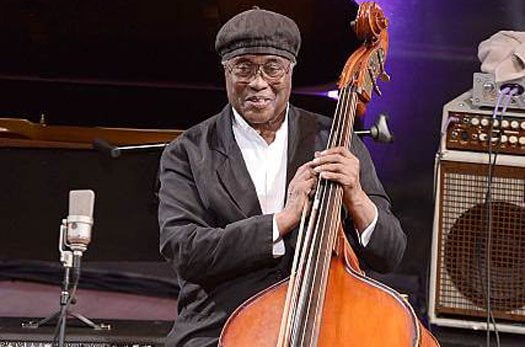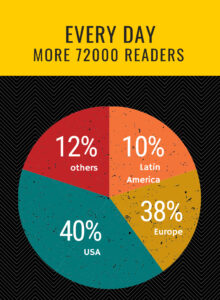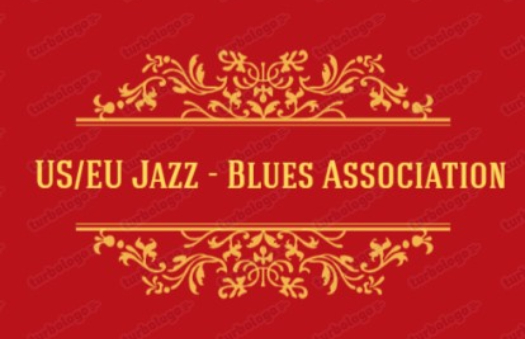Ican’t rattle off a list of my most beloved guitarists, despite being a so-so guitar player myself, but I can quickly tell you my top ten bassists. One of my favorites has played with famous musicians across many genres, but most folks don’t even recognize his name. As far as I know, my first exposure to the great Richard Davis came through Van Morrison’s landmark 1968 LP, Astral Weeks, with its seamless blend of R&B, pop, blues, folk, and jazz that Morrison called “Celtic soul.” Even my untrained adolescent ears could hear something in Davis’s playing that jumped out at me—his throbbing, luscious double bass seemed to guide the music, and later I learned that he was the de facto bandleader on the sessions.
Much later, I learned that Davis came up in the Windy City and built important groundwork for his career here. That’s enough for me to claim this brilliant bassist—an exactingly trained virtuoso as well as a telepathically intuitive improviser—for the Secret History of Chicago Music.
Davis was born on the south side on April 15, 1930, and grew up singing bass harmonies in his family’s amateur vocal trio. There were lots of records in their home, and Davis remembers using a windup Victrola in the basement to listen to Lucky Millinder’s “Big Fat Mama,” Lil Green’s “Romance in the Dark,” Billy Eckstine’s “Jelly, Jelly,” and Avery Parrish’s “After Hours.”
Davis picked up the bass at age 15, fairly late in life by the standards of a future professional musician. “I was just enthralled by the sound,” he recalled in a 2013 interview published last year by Allegro, the digital publication of the New York chapter of the American Federation of Musicians. (Davis joined the union in 1955.) “The bass was always in the background, and I was a shy kid,” he said. “So I thought maybe I’d like to be in the background.”
By the time Davis attended DuSable, its alumni included Nat “King” Cole, Dinah Washington, Gene Ammons, and Von Freeman. Among Davis’s contemporaries under Dyett’s tutelage were rock ’n’ roll architect Bo Diddley, free-jazz violinist Leroy Jenkins, bassist Ronnie Boykins, and celebrated sax players Johnny Griffin, John Gilmore, and Eddie Harris.
Davis didn’t have the easiest time studying under Dyett. “He had crude methods but it was out of what you’d call tough love,” he told Jazz Inside magazine. “He told me to sit down once and said that I’d never play the bass, and I did exactly what he probably wanted me to do: I said, ‘I’ll show you one day.’ And 20 years after I graduated, he was still prodding me, making me do things. That’s a teacher.”
Davis was also extremely driven in school to begin with: “I couldn’t afford lower than 100 percent, because I was black and I had two strikes against me already,” he said. “With that kind of discipline and with the discipline of Walter Dyett, I had nowhere to go but to the top.” Dyett also pushed Davis to study both jazz and classical bass, a versatility that would help him reach the peak of his field.
After classes in high school, Davis began taking lessons with Chicago Symphony Orchestra bassist Rudolph Fahsbender, another hard-nosed educator. That mentorship lasted nine years, including Davis’s time at the VanderCook School of Music, where he earned a bachelor’s in music education in 1952.
“The first time I met Sonny, my buddies brought him to my house, and he said, ‘I’m not gonna take you to the moon because you’re not ready yet,’” Davis told Allegro. “And I said, ‘Who is this guy?’” Ra planted the seed in Davis to see music “on a global level,” and that far-reaching vision would be a central theme in the bassist’s future work.
In 1953, Davis hooked up with the trio led by famed pianist Ahmad Jamal, and the following year a life-changing opportunity came knocking. Davis knew fellow Chicago jazz bassist and future star arranger Johnny Pate (also a SHoCM subject), who’d been playing in a trio with pianist Don Shirley. Shirley was taking his group to New York, but Pate didn’t want to leave. To solve the problem, the bassists traded bands: Pate joined Jamal, and Shirley took Davis to New York, where he stayed for 23 years.
Davis was initially intimidated by the profusion of jazz talent in New York, but he soon found a welcoming community. He landed a gig in Sarah Vaughan’s band in 1957, playing alongside pianist Jimmy Jones and drummer Roy Haynes; over the next few years he’d record four albums with the esteemed singer. In the early 60s Davis’s career exploded, and he worked in ensembles led by luminaries such as Booker Ervin, Andrew Hill (also from Chicago), Cal Tjader, and Eric Dolphy—he appeared on Dolphy’s 1964 LP Out to Lunch!, one of the canonical documents of 60s avant-garde jazz.
Davis had met Dolphy by chance on the subway in 1961, and with Dolphy his playing evolved into newly abstract realms. “When it comes to freer music, the chords didn’t matter that much,” he told Allegro. “It was what you’re hearing around you and what you’re hearing in your own head that shaped the circle of musical events.”
Echoing the philosophy of Sun Ra, Davis explained what free jazz meant to him: “Limiting yourself to a particular set of notes and chords is in a sense being a slave to the powers that be. We were resisting being imprisoned by chord changes, trying to free ourselves from the restrictions of scales and rhythms. Some people call this free music. Some of us called it our music. Unrestricted, indefinable, and free.”
Davis recorded his own albums as well: he cut the classic Elvin Jones duo Heavy Sounds for Impulse! in 1967, and he stepped out as a bandleader himself on Muses for Richard Davis (recorded for MPS Records in 1969) and The Philosophy of the Spiritual (for Cobblestone in ’71). He joined the Thad Jones/Mel Lewis Orchestra for several years in 1966, and he continued to back up a staggering variety of fellow jazzers, including Clifford Jordan, Sonny Stitt, Kenny Burrell, Oliver Nelson, Wes Montgomery, Miles Davis, Dexter Gordon, Rahsaan Roland Kirk, and Joe Henderson.
In this same period, Davis also crossed over into pop and rock, working with the likes of Frank Sinatra (for his 1970 Watertown LP) and Barbra Streisand (on several early albums). Davis became so in demand, with so many jobs on the books, that he often ended up arriving at a session not knowing much about the artist he’d be accompanying.
Such was the case with the masterpiece Astral Weeks. Davis didn’t even get the chance to say hello to Van Morrison at the session. “He came in and went into a booth, and that’s where he stayed, isolated in a booth,” he told Allegro. “He seemed very shy.”
This is pretty mind-blowing to hear, given that the synergy between Van the man and the session musicians—including Davis, vibraphonist Warren Smith Jr., and guitarist Jay Berliner—vibrates at such a high level that this heady crossover classic has been topping best-album lists for more than 50 years. Music critic Greil Marcus declared Davis’s playing “the greatest bass ever heard on a rock album.” I can’t help but love Astral Weeks dearly to this day, even though Morrison has proved himself a terrible COVID crank.
Davis also played on Paul Simon’s “Something So Right,” Janis Ian’s “At Seventeen,” and Bruce Springsteen’s “Meeting Across the River” (from Born to Run). His dizzyingly diversified talent took him likewise into the world of 20th-century classical music, and he played under conductors such as George Szell, Leopold Stokowski, Leonard Bernstein, and Pierre Boulez. He once worked with composer Igor Stravinsky and trumpeter Kenny Dorham in the span of one day.
Davis also continued to pursue his other great love: equestrianism. He’d worked in stables as a kid and became an accomplished horseman, competing in dressage and jumping. He ultimately decided that one career was enough and stopped short of getting into trading or racing, but he’s owned and even bred horses—especially after leaving New York for Wisconsin in 1977.
That was the year Dyett’s lessons bore a new kind of fruit when Davis became a teacher himself. At the University of Wisconsin-Madison he took the title “Professor of Bass (European Classical and Jazz), Jazz History, and Combo Improvisation.” His new school and town were overwhelmingly white (a situation Davis wasn’t used to), and he served as an anti-racist advocate on several fronts. He advised the university’s efforts to improve its ability to attract and retain students of color, and he served as its diversity liaison in faculty hiring. He also led Madison’s Institutes for the Healing of Racism—he founded the nonprofit in 2000 and hosted its meetings in his home till 2017.
In 1993, he launched the Richard Davis Foundation for Young Bassists, which employs an all-star staff of veteran teachers to instruct musicians ages three to 18. In 2014, Davis won a Jazz Masters fellowship from the National Endowment for the Arts. He retired from the university in 2016, and as recently as that year he was playing in Paris as part of a Coltrane tribute led by fellow out-jazz icon Archie Shepp.
Now in his 90s, Davis remains in Madison, teaching on the side and continuing his work with the Foundation for Young Bassists (its most recent event was in April of last year). “I practice when the mood hits me, depending on what I want to get done,” Davis told Allegro, sounding like a Zen sage. “I’m also always practicing when I’m with my students.”





![Milktrain / Richard Davis [Muses For Richard Davis(1969) 1/6]](https://i0.wp.com/i.ytimg.com/vi/ZML9aUvD5Bk/hqdefault.jpg?w=780&ssl=1)










More Stories
CD review: George Benson – Dreams Do Come True: When George Benson Meets Robert Farnon – 2024: Video, CD cover
The band was tight as ever. The Warren Haynes Band cuts loose: Video, Photos
Interview with Alvin Queen: Feeling Good – I heard these tunes played by … Video, new CD cover, Photos